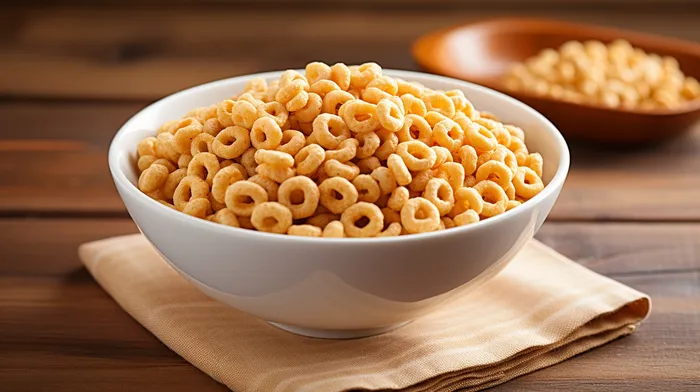Breakfast is considered the most important meal of the day, providing the fuel your body needs to start the day right. And for many, a quick and easy option is a bowl of cereal. However, have you ever stopped to check if your favorite breakfast cereal contains any genetically modified organisms (GMOs)? Unfortunately, most store-bought cereals do contain GMO ingredients, which have been a topic of debate in recent years.
A New GMO-Free Option
Amidst the growing concerns surrounding GMO products, General Mills announced that they will be releasing a GMO-free version of their popular Cheerios cereal. This new iteration of Cheerios will make it one of the most popular cereal brands to make the shift to a GMO-free form. For consumers who want to avoid GMOs, this is excellent news!
It is essential to note that this change only applies to the original version of Cheerios. Brand extensions such as Honey Nut Cheerios will still contain GMO ingredients. General Mills has already started producing these GMO-free Cheerios, but consumers may have to wait at least a month before it is available on store shelves. Once available, the boxes of Cheerios will be labeled “Not made with genetically modified ingredients.”
Why Make the Change?
But why did General Mills choose to make this change in their Cheerios production? According to the company, Cheerios was the product most easily shifted to a GMO-free form. Oats, the main component of Cheerios, have not been genetically modified for commercial use. Consequently, the company only had to develop new supplies of sugar and cornstarch.
While General Mills maintains that GMO cereals are safe, they opted to release the GMO-free food to satisfy consumer demand. In recent years, the general public has become more conscious of the food they consume, and there has been an increasing demand for GMO-free products. By offering a GMO-free version of Cheerios, General Mills aims to cater to those customers who prefer to avoid GMOs in their diet.
GMOs: What’s the Debate?
The debate surrounding GMOs has been ongoing for years, with many arguments both for and against their use in food production. Proponents believe that GMOs can help increase crop yields, resist pests and diseases, and contribute to a more efficient and sustainable agriculture system. On the other hand, opponents argue that GMOs could have adverse health effects, harm the environment, and lead to a loss of biodiversity.
Though many scientific and regulatory organizations have declared GMOs safe for consumption, including the World Health Organization and the FDA, public opinion remains divided.
Alternatives to Store-Bought Cereals
While the release of a GMO-free version of Cheerios is certainly a step in the right direction, consumers looking to avoid GMOs completely might consider alternatives to store-bought cereals. Homemade granola or muesli can be an excellent and healthy option, allowing you to control the ingredients that go into your breakfast, including using organic oats, nuts, seeds, and dried fruits. Here is a simple granola recipe to get you started.
Additionally, ample organic and GMO-free cereals can be found in grocery stores, specifically in the natural or organic food sections, or from online retailers. This way, you can still enjoy the ease and convenience of breakfast cereal while choosing a GMO-free option.
Making Informed Choices
Ultimately, it is essential to be informed about the ingredients in the products you consume, whether it’s breakfast cereal or any other food. In choosing a GMO-free version of Cheerios or opting for organic and GMO-free alternatives, consumers can exercise their power to make dietary choices that align with their values and beliefs.
As more companies, such as General Mills with their Cheerios brand, acknowledge the demand for GMO-free products, the future may see a drastic shift in grocery store shelves, with more and more non-GMO options becoming available. In the meantime, continue to stay informed about the food you consume and make the best choices for yourself and your family.



